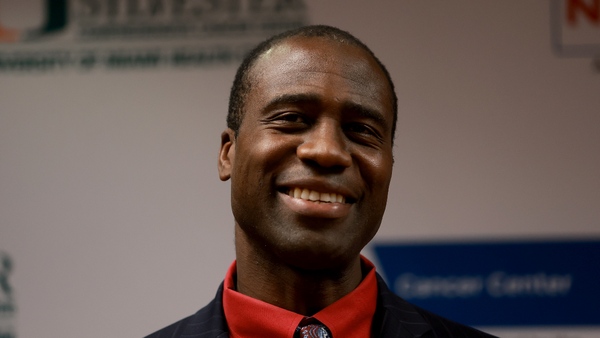
I want to believe in a world where this happened: Mick Lynch, head of the RMT union, did a media round last year so successful, running such effortless rings around Piers Morgan and the bishop of Durham in particular, that he built up his own power base in ambient public popularity, reflected in growing support for the rail strikes. As a result, the government’s previous strategy – to wind back rail subsidies via cuts to wages, jobs and conditions, acting and speaking in lockstep with the industry while stonewalling the union – gradually unravelled over 18 months.
In consequence the transport secretary, Mark Harper, has had to climb down on cuts to ticket offices – 1,000 were due to have been axed; that number is now zero – the government’s previous harmony with the industry is in discord, and Lynch is declaring a “resounding victory”.
I would love it if that were the chain of events: it would be more than a credit to Lynch. It would also prove that the power of withholding labour is timeless, and the fashionable media line – that strikes are silly, actually, and all they do is get people’s backs up – is no greater defence against them than a chiffon pashmina is against Storm Ciarán.
It would bode well for so many other sectors – medics, lecturers, teachers, baggage handlers, bus drivers, all of whom have had similar, bizarre experiences of ministers simply refusing to engage. Pat Cullen, head of the Royal College of Nurses, described to me her first meeting with the health secretary, Steve Barclay, exactly a year ago. She brought up the issue of pay, and recalls, “He said, ‘Let’s talk.’ Then he got up and left.”
The government’s industrial strategy, so far as workers are concerned, has been: ignore them and they’ll go away. Which, you have to admit, is novel.
There’s an alternative reading of the climbdown on ticket offices that, if true, would be quite heartening from another perspective: that it was made necessary by a consultation, in which 750,000 responses were almost entirely against the closures, for reasons that often centred on accessibility. Passenger watchdogs Transport Focus and London TravelWatch described “passionate and powerful concerns” for how disabled and elderly passengers would get help if not from a ticket office.
Successive Conservative governments have been completely unresponsive to the impact their policies have had on people with disabilities. From introducing benefit cuts and backlogs to doing nothing to mitigate rising social care costs, no Tory prime minister since 2010 has had any compunction about making disabled people poorer. The writer and campaigner Frances Ryan described disabled people as having “not a cost of living crisis but a cost of staying alive crisis” this year.
The Covid inquiry this week has laid bare an attitude at the highest level of government that, being real, we could all hear at the time: they were using “underlying health issues”, along with “over 80” as code for “they would have died soon anyway”. If we really are witnessing a complete change of heart – where ministers hear concerns, listen to them and act – that is welcome, if pretty stunning.
There is another possible explanation for the U-turn, which isn’t necessarily competing, and which might just be part of the mix: closing ticket offices was unpopular with backbench Tories, the high-profile and noisier ones in particular. September saw the strange alliance between the TSSA union, Priti Patel and Mark Francois, the latter calling the proposals “completely unloved”, “quite, quite the opposite” of popular with backbenchers.
Both Patel and Francois are renowned freelancers, and as such are not bad weathervanes for the state of the party, how well it’s living up to its promise. Parking Rishi Sunak’s explicit pledges when he took over as leader, which were mainly to rectify things over which he had little control and which would right themselves eventually anyway, his implicit promise was that he would create a new centre of gravity in the party around the reasonable people, as a result of which rebellions would quieten down and recalcitrant backbenchers would know the peace of their own irrelevance.
Probably through the combination of a lacklustre conference, the byelection defeats, and the canning of HS2 plus the chorus of high-profile internal dismay that came with it, Sunak has failed to deliver on the unity promise. There simply doesn’t seem to be any upside to obedience, particularly for “red wall” MPs who were elected under Boris Johnson’s completely different banner, and will owe whatever scant chance they have next time round to making a name for themselves on quintessentially local issues – like, as a wild for-instance, keeping the station’s ticket office open.
Ultimately, whether Harper is motivated by a new respect for union organising, a proper sensitivity to the needs of disabled people, or a catastrophically weak administration is of second-order importance. I know I speak for 75% of the population (OK, Good Morning Britain viewers, circa nine months ago) when I say: if Mick Lynch is happy, that works for me.
Zoe Williams is a Guardian columnist







